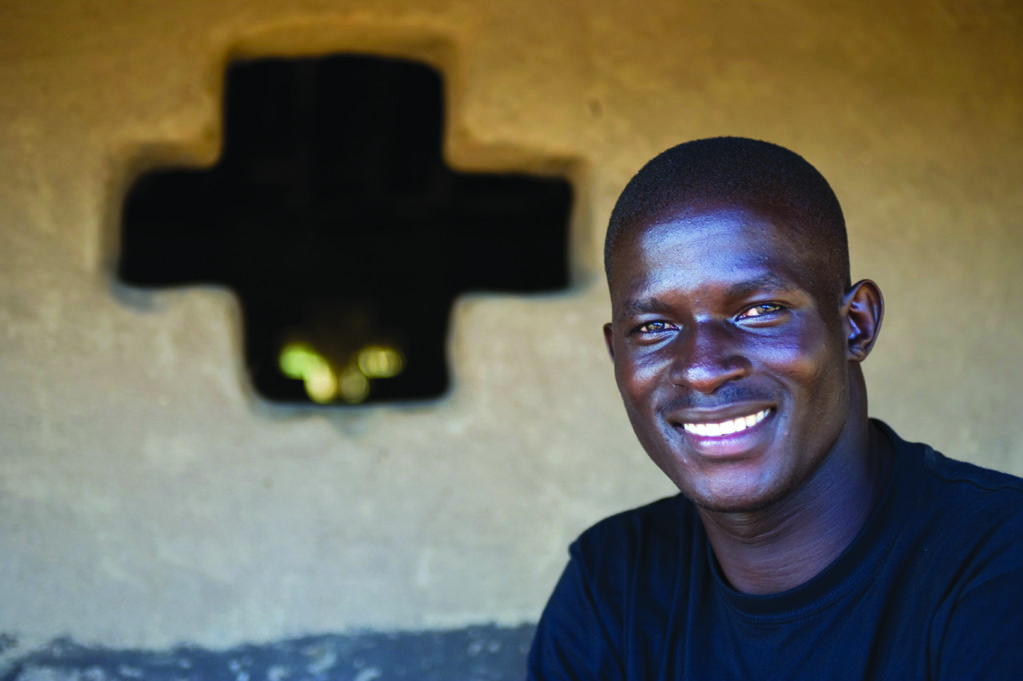Ten years ago, Victor Ochen, was a cobbler, fish monger and charcoal burner. This year, the 33-year-old is the first Ugandan and youngest African to be nominated for the Nobel Peace Prize.
Ochen spent most of his early childhood at an internally displaced persons (IDP) camp in Abia at the height of a bloody war perpetuated by Joseph Kony’s Lord’s Resistance Army (LRA) in northern Uganda. He is now the director of the African Youth Initiative Network (AYINET), offering medical and psychological rehabilitation to the thousands of victims of the conflict.
Ochen, who was nominated with AYINET, says he can’t believe he will be competing with global personalities like Pope Francis; Edward Snowden, who leaked details of American electronic surveillance; and Novaya Gazeta, a Russian investigative newspaper critical of President Vladimir Putin.
“I was born in war, raised in war, a life no child should live. I can’t believe the work I did for the good of my people, a local struggle, has taken me to the international level,” he says.
Ochen has seen the horrors of war. He watched his mother die in 1996 because the conflict barred the way to malaria drugs.
Loading...
“We tried to carry my mother on a stretcher from Abia to Lira (about 20 kilometers away) but the rebels had set up so many traps around the area. After carrying her for some time, she told us to take her back home and instead take care of ourselves.”
Later, Ochen’s mother died, which led to his father wanting to commit suicide. With his brother, Ochen managed to convince his remaining parent to live.
Before their mother died, Ochen and his brother vowed to never shoot a gun.
“Up to now, I don’t know how to fire a bullet,” he says.
After relocating to an IDP camp, life became rough. Ochen would dig other people’s gardens and burn charcoal to earn money for food.
Around 1995, at the age of 13, Ochen formed a youth peace club that was against the recruitment of child soldiers.
“I remember being called by some elders and asked how I could talk about peace yet I had never lived a peaceful life. They also told me I would be killed by the army if they got to know I was preaching against war,” says Ochen.
Living with war has left Ochen with an aversion to violence.
“I don’t celebrate when I see a rebel being killed. I believe there are conditions that forced these people to fight. But again committing crimes against humanity with impunity cannot go on.”
Ochen believes that former LRA commander, Dominic Ongwen, currently at The Hague facing war crimes, should be punished.
“He was such a vicious commander who oversaw the abduction, rape and murder of tens of thousands of children and women. He should answer for his sins. Let him at least tell us where some of the women and children are. We know they must be somewhere.”
Ochen witnessed an operation led by Ongwen in 1999 when he was burning charcoal to try and earn money to register for national examinations.
“We watched them open our charcoal and spoil it. They only crazy thing I have done in my life was throwing stones at the 100-plus gun-wielding rebels to try and stop them from spoiling my charcoal. I cried silently, cursed Ongwen and ran back to
the camp.”
Whereas other children go to school to get jobs, Ochen’s story was different as “I have always done all kinds of jobs so that I can go to school.”
The year he joined secondary school, Ongwen worked as a fish monger to raise money to buy a box and pay fees. Throughout his life, Ochen never put on shoes until he was chased out of a senior two lesson for wearing lugabile (sandals made from old car tyres).
“I remember becoming a cobbler in school and raising 8,000 Ugandan shillings to buy my first shoes. However, I did not put on these shoes as they were stolen the same night I bought them. I never saw them again and up to now I’m still looking for my first pair of shoes,” says Ochen with a smile.
He was able to finish Senior Four and went on to work as a cleaner, receptionist and radio presenter. Ochen was voted the best radio presenter in Lira.
His first attempt to join university in 2003 was thwarted by a lack of school fees. His family relied on him for income.
“I was later lucky to get a job with Straight Talk Foundation where I got some money and studied a bachelor’s degree in Leadership and Development Studies from the little-known World University of Leadership (the university has since stopped operations in Uganda),” he says.
While at Straight Talk, Ochen decided to form his own organization. He wrote several proposals that have now helped him to run a budget of $1 million.
Top on the list of activities is helping victims of the LRA war. Those whose lips were chopped off, those who were amputated and the returnees who need to be helped back into the community.
His greatest belief is that his story represents the African youth who has suffered at the hands of what he calls greedy
war mongers.
“The youth are being used as tools of injustice yet they should be used as tools of justice. It is good we have helped strengthen the understanding of foundations for justice such as the International Criminal Court.”
Ochen says the trial of Ongwen should be a wake-up call for all those involved in war crimes.
This year’s winner of the Nobel Peace Prize will be announced on October 9, the day Uganda celebrates its independence.
“My prayer is that as we celebrate Independence Day, my effort will be rewarded so that the African youth living in IDPs can see a bright future ahead of him.”
Loading...
